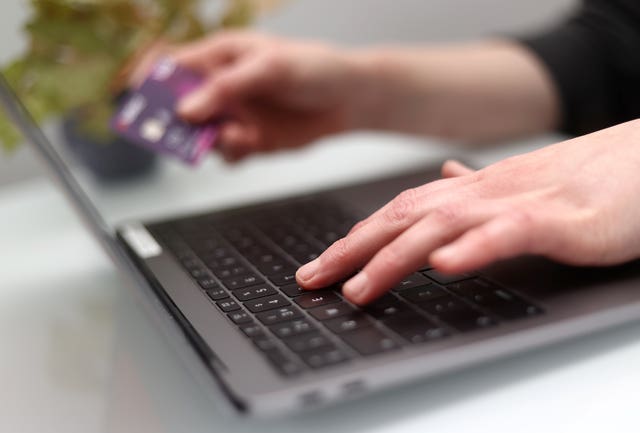
Ben Kentish 10pm - 1am
15 October 2020, 13:54

A new poll suggests many people would like digital literacy to be more widely available to help ease anxiety.
Nearly a third of adults in the UK feel more vulnerable online since the coronavirus outbreak because of the increasing time spent on the internet during lockdown, new research suggests.
A poll from Get Safe Online and YouGov found that 30% say they feel more anxious about cybercrime because of the increased screen time, and 64% said more should be done to boost digital literacy.
A number of cybersecurity experts, including the UK’s National Cyber Security Centre (NCSC), have previously warned of an increase in online scams linked to the pandemic, as criminals look to exploit misinformation and fears around the virus.
Concerns have also been raised about the ongoing security risks of people working remotely because of lockdown restrictions.
A report published this week by the Ponemon Institute and Keeper Security which surveyed IT staff found many felt they did not have adequate budget to properly protect their organisations while staff worked from home.
Our latest report with @PonemonPrivacy has revealed increased cybersecurity risks for companies around the world.
Read more and download the full report on the Keeper Blog: https://t.co/qM98p8Ku4E #NCSAM #becybersmart pic.twitter.com/3Y4aUdl1Yy
— Keeper Password Manager #NCSAM #BeCyberSmart (@keepersecurity) October 15, 2020
According to the Get Safe Online and YouGov research, a lack of digital literacy was a key cause for anxiety – 44% of those asked said they had used video conferencing for the first time during lockdown, while 18% said it was their first time using online shopping.
In response to the research, Get Safe Online has released a new code of conduct for people and businesses to follow to better protect themselves while online.
It has produced an online handbook which offers guidance on how to protect against online fraud and abuse.
Tony Neate, chief executive of the online safety organisation, said: “The global pandemic has been massively exploited by cybercriminals as more and more people use the internet and mobile and home devices to do work, relax, learn and connect with friends, family and loved ones.
“Our dependency on digital has meant many of us are now much more vulnerable. Our defences are down, distracted by the demands of dealing with Covid-19. It’s therefore vitally important that we all know simple measures to stay safe online. Our new code of advice will hopefully raise awareness and instil best practice.
“Of course, this is far from being just a UK problem. Online crime has no borders – criminals can be located anywhere in the world and equally, don’t care who or where you are. They just want your money and it’s particularly prevalent in English-speaking countries.
“That’s why we have partnered with the UK’s Foreign, Commonwealth & Development Office to work with 24 nations across the Commonwealth as part of our Get Safe Online Global24 event.”

That event will see online safety advice distributed around the world through radio broadcasts, social media campaigns and other activities.
James Cleverly, Minister for National Security at the Foreign, Commonwealth and Development Office, said: “The coronavirus pandemic highlights the importance of a free, open, peaceful and secure cyberspace.
“As more people use the internet to work and connect with people from home, it’s more important than ever that the international community co-operates to face the challenges posed by those using Covid-19 as an opportunity to undertake malicious cyber activity.
“That’s why we’re partnering with Get Safe Online and supporting their Global24 events across 24 Commonwealth nations to help businesses, citizens and international partners to better defend themselves against cyber threats.”